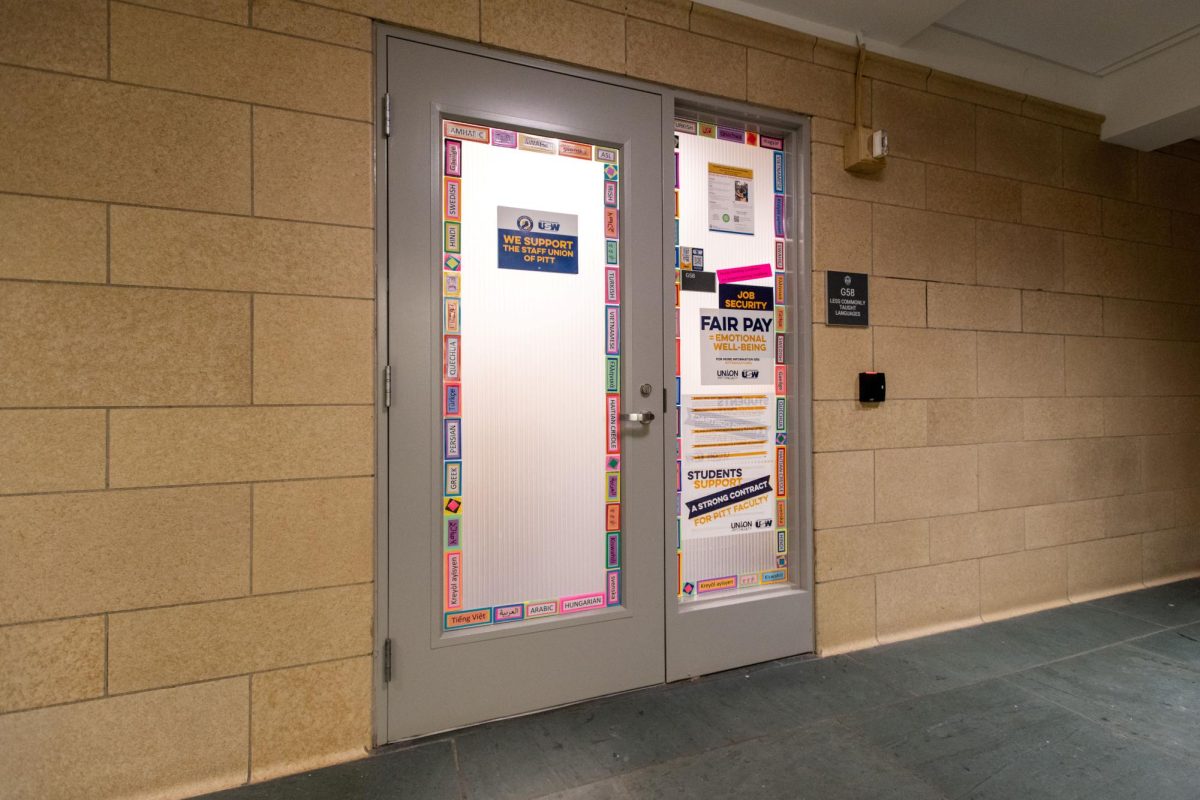For Chris Matthews, working at the Less-Commonly-Taught Languages Coffee House is meaningful because it gives him the opportunity to introduce students to a variety of new languages they may not have otherwise been exposed to.
“Language diversity is very important to me, and that extends into the classroom,” Matthews, a senior linguistics major and LCTL student engagement specialist, said. “Too often, we find ourselves with only one or two language options. LCTL allows students to pursue passions in so many other areas.”
The coffeehouse, hosted by the Less-Commonly-Taught Languages Center on Feb. 2, will take place in the Assembly Room of the William Pitt Union and will feature 25 language booths run by professors and student volunteers representing all language departments at the university.
Student volunteers will first demonstrate how to order a snack and drink in each represented language at the outer perimeters of the room. Participants will then be able to place orders from booths at the center of the room to practice what they have learned.
Gretchen Aiyangar, the LCTL program coordinator, said the LCTL Coffeehouse is an opportunity for students to explore potential language courses as well as earn credits toward both the Outside of the Classroom Curriculum (OCC) Program and Global Distinction.
“Imagine a place where you can order a fresco in Haitian Creole, lokum in Turkish, bissap in Wolof, ch’arki in Quechua, and kourabiedes in Greek, all within the span of an hour,” Aiyangar said. “That’s our Language Coffeehouse.”
This year’s coffeehouse will be the biggest yet, according to Aiyangar, with languages including Wolof, Persian, Hebrew, Swahili and American Sign Language represented.
To prepare the coffeehouse, language faculty select and buy snacks and drinks for each booth, from both Pittsburgh and beyond. The coffeehouse is made possible each year through a variety of sponsors including the University Center for International Studies, the Global Experiences Office, the Department of Linguistics and all language departments.
Matthews said his primary role as a student employee at the coffeehouse is to direct and oversee student volunteers.
“My primary job is to make sure all the students know what they are supposed to be doing and where they are supposed to be at all times,” Matthews said. “This involves me hosting training sessions for all of the volunteers to show them what successful teaching practices are as well as to build excitement amongst the volunteers.”
Inat Mulaw, a senior linguistics and international studies double major, said she decided to volunteer at the coffeehouse this year after having a positive experience at last year’s event teaching students Amharic.
“It was so great to introduce people to a language that a lot of them had never even heard of and seeing them be so open to the culture,” Mulaw said. “This year I’ll be teaching people how to order coffee and dabo kolo, a traditional Ethiopian snack, in Amharic.”
Matthews said he appreciates events like the coffeehouse because of how hard it is to practice less commonly taught languages.
“Unfortunately, due to the languages being less commonly taught, they are often hard to practice outside of the classroom, which is why events like the coffeehouse are so important,” Matthews said. “We are aiming to provide experienced students a space to practice their language skills while also drawing new students in.”
Aiyangar said learning a new language is a valuable skill that extends far beyond the classroom because it takes time and dedication to learn the skills to speak a second language.
“You’ll be better prepared for study abroad, you’ll be a more sought-after candidate for most jobs, and you’ll just be generally better equipped to engage and interact with other people over the course of your whole life, regardless of your career path,” Aiyangar said.



